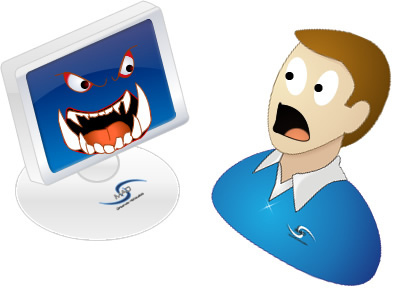When you read something you like, your first thought may be to post it on Facebook, even if it is quite lengthy. To avoid trouble, ask yourself this question first: who owns what you are posting?
Whether it is a written text, photograph, artwork, song, video, or some kind of software program, someone worked to create it and that person has rights. You may think that your Facebook page is a private thing no one should care about, but insofar as the public can see it, it is considered public use. For this reason you should always be careful about what you post online, and not just in terms of what may be copyrighted by someone else.
If you found it somewhere else, it is almost certainly under copyright to someone or some company. That means they get to decide who should use it and how. As boring and time-consuming as it may seem, you must contact the copyright owner to get permission to use such items, otherwise they may contact you and be very unhappy that you took their work without permission.

How to find the copyright owner:
Look for the name listed as author or publisher of whatever it is you want to use. The “Contact Us” section of any website is a good place to start. Or do a Google search to find contact info. There are also professional websites such as www.copyright.com for more in-depth advice about copyright. You may receive good news, that you are allowed to quote a small part of a written text, for example, instead of an entire article. If you only intend to quote something for educational, personal use and without making any profit on it yourself, chances it your use may be approved. If the copyright owner approves your use, make sure you keep a copy of their reply granting you permission as it may be useful one day. The key point that will interest copyright holders is whether fewer people will want to buy what they own because you have helped make it available to the public for free. If you damaged their sales potential, then the owners may not appreciate it. So if you have used someone else’s material in a business context, to help you make money in some way, or you made available what is not ordinarily in public access, or you posted an entire book or chapter, you can easily have problems.
Other ways to draw attention to something you like or hate online
Instead of quoting or otherwise using vast amounts of material, try linking to whatever website has (legally) posted the material that interests you. Also if the material is very old, around a century old, it may be out of copyright so try to find out if it is in fact free for use, in the public domain. Do not assume that just because something is old, it is no longer copyrighted; you must check with the owners to find out.

What happens if you violate someone’s rights by posting material online?
You may get an unpleasant letter telling you to remove whatever it is you have posted. The law can be involved, and you can even be sued for money, if whatever it is has some monetary value, however small. Some of the fines are far greater than the actual value of the material, and in some cases, serious prosecutions have resulted that have been unhappy experiences for the people who posted things online without thinking of the consequences. For example, in America there is the No Electronic Theft Act:
http://en.wikipedia.org/wiki/No_Electronic_Theft_Act
What about your own rights to materials you created?
Keep in mind that once things are out on the internet in any form, they are very difficult to control and keep private. For this reason, if you yourself post something which you have created on Facebook, Twitter, Flickr, YouTube, Pinterest, or LinkedIn, depending on the policies of these websites, they can pretty much do what they want with your material without your consent. If you value what you have created, think twice before posting it online.
Remember, there is no privacy online:
Things posted online are considered to be stated in public. That means if what you have posted makes anyone angry and they feel you have lied or harmed them, they can sue you. Being sued is not a nice experience, and it can be very costly, so it should be avoided at all cost.

How to lose friends with Facebook:
Also keep in mind that whatever photos you may post online of yourself and your friends can be examined years later by future employers and others who are not your friends. Make sure that you do not post anything about anyone if it is not the kind of thing you would want someone else to post about you. If you do so, you can damage their future chances for employment, for example, and this could cause real problems for your ex-friend.
Privacy means privacy, not material for your Facebook page.
Also be careful not to post any images of people who did not think they were being photographed or recorded. Privacy is very important, and if you make public what people thought was private, you can also get into a lot of trouble.
Pay attention to office rules about what can be discussed online.
If you work at a job while studying, your office may have rules about what they permit employees to discuss online, and the job contract you signed may have some information about this. Be careful not to make public things which are meant to be kept within an office, or you can get fired.
(all images courtesy of Wikimedia Commons).

